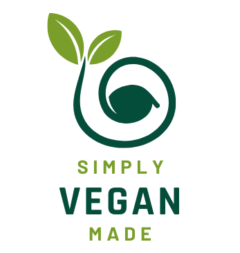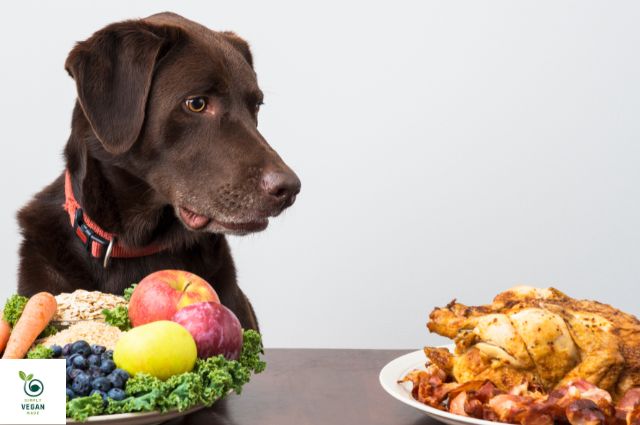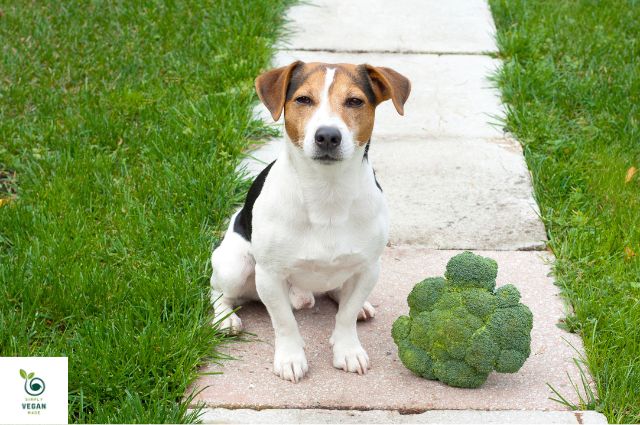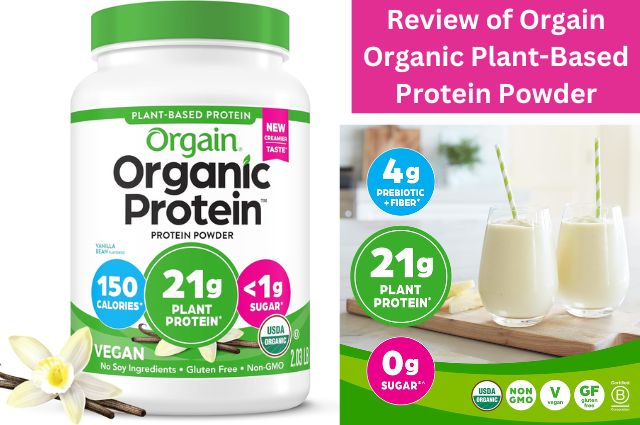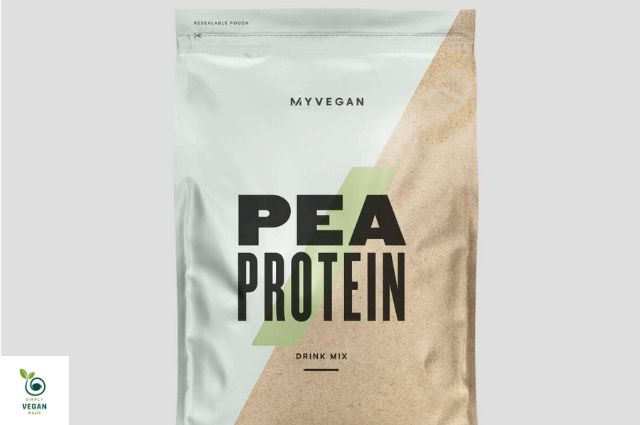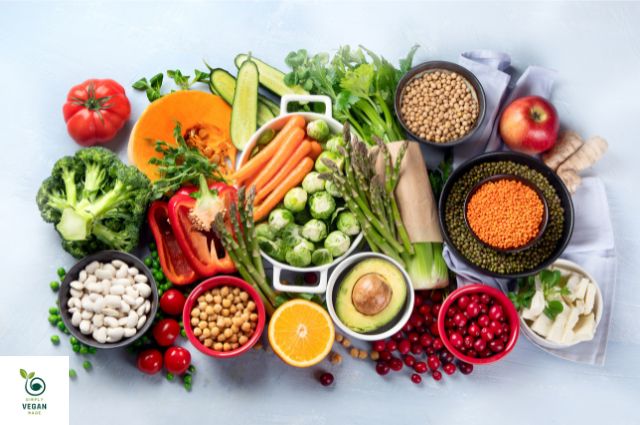Understanding Canine Nutrition – Vegan Diets for Dogs
Dogs have evolved alongside humans for thousands of years, adapting their digestive systems to handle a variety of foods. While their wolf ancestors were primarily carnivorous, modern dogs are classified as omnivores.
This means they can derive nutrients from both plant and animal sources.
The canine digestive system is designed to process a mix of proteins, fats, and carbohydrates. However, their bodies have specific nutritional requirements that have traditionally been met through animal-based products.
These include essential amino acids, fatty acids, vitamins, and minerals that play crucial roles in maintaining overall health. If interested in finding out about vegan diets for dogs, read this comprehensive article.
The Rise of Vegan Dog Diets
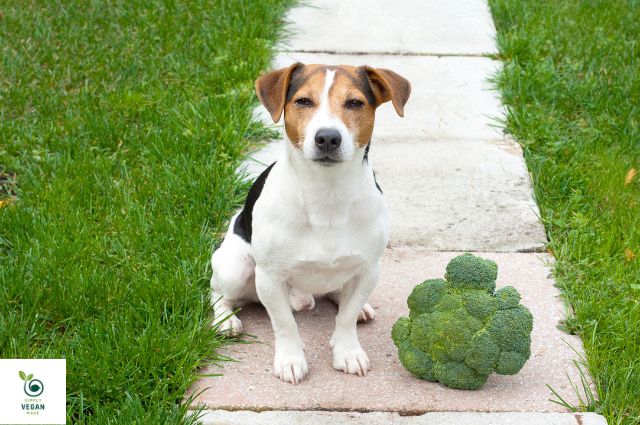
As more people adopt plant-based lifestyles for ethical, environmental, or health reasons (see what is veganism?), some are extending these choices to their dogs. The concept of vegan dog diets has gained traction in recent years, sparking debates among veterinarians, animal nutritionists, and pet owners.
Proponents argue that carefully planned vegan diets can meet all of a dog’s nutritional needs while offering extra benefits. Critics express concerns about potential nutrient deficiencies and long-term health effects.
To make an informed decision, it’s essential to examine both sides of the argument.
Potential Benefits of Vegan Diets for Dogs
Allergy Management
One of the most compelling reasons some pet owners consider vegan diets for their dogs is to manage food allergies. Many dogs suffer from allergies to common animal proteins like chicken, beef, or dairy.
These allergies can manifest as skin irritations, digestive issues, or chronic ear infections.
A well-formulated vegan diet eliminates these common allergens, potentially providing relief for dogs with food sensitivities. By removing animal proteins from the diet, many dogs experience improvements in their skin condition, digestion, and overall comfort.
Environmental Impact
The environmental footprint of pet food production is significant. Some studies suggest that the pet food industry’s impact rivals that of entire countries’ energy consumption.
By choosing plant-based options for their dogs, environmentally conscious pet owners can reduce their carbon footprint.
Plant-based dog foods generally need fewer resources to produce compared to meat-based options. This includes reduced water usage, land requirements, and greenhouse gas emissions associated with livestock farming.
Ethical Considerations
For vegan pet owners, aligning their dogs’ diets with their own ethical beliefs can be a powerful motivator. By choosing plant-based options, they feel they’re extending their commitment to animal welfare to their pets’ nutrition as well.
This ethical alignment can provide peace of mind for pet owners who are concerned about the treatment of animals in the meat industry or who wish to reduce overall animal consumption.
Risks and Challenges of Vegan Diets for Dogs
Nutrient Deficiencies
The primary concern with vegan dog diets is the risk of nutrient deficiencies. Essential amino acids, vitamins, and minerals that are typically abundant in animal products can be challenging to get from plant sources alone.
Key nutrients of concern include:
- Taurine: An amino acid crucial for heart health and eye function
- L-carnitine: Important for fat metabolism and heart health
- Vitamin B12: Essential for nervous system function and red blood cell production
- Iron: Necessary for oxygen transport in the blood
- Zinc: Vital for immune function and skin health
While it’s possible to supplement these nutrients in vegan dog foods, achieving the right balance and ensuring proper absorption can be complex.
Digestibility Issues
Plant proteins are generally less digestible for dogs compared to animal proteins. This means that even if a vegan dog food meets nutritional standards on paper, your dog may not be able to absorb and use all those nutrients effectively.
The digestibility issue can lead to larger stool volumes, more frequent defecation, and potentially inadequate nutrient absorption over time.
Long-term Health Effects of vegan diets for dogs
There’s limited long-term research on the effects of vegan diets on dogs’ health over their entire lifespan. While some studies show promising results for adult dogs, questions stay about the impact on growth in puppies, reproductive health, and aging.
The lack of comprehensive long-term studies makes it difficult to forecast potential health issues that may arise after years of a vegan diet.
Implementing a Vegan Diet for Your Dog
If you’re considering transitioning your dog to a vegan diet, it’s crucial to approach the process with caution and expert guidance. Here’s a step-by-step guide to help you navigate the transition:
1. Consult with a Veterinary Nutritionist
Before making any drastic changes to your dog’s diet, seek professional advice tailored to your pet’s specific needs. A veterinary nutritionist can assess your dog’s health status, age, breed, and activity level to determine if a vegan diet is appropriate and how to apply it safely.
2. Choose a High-Quality Commercial Vegan Dog Food
Look for brands that meet AAFCO (Association of American Feed Control Officials) standards and have undergone feeding trials. These standards ensure that the food meets basic nutritional requirements for dogs.
Some reputable vegan dog food brands include:
3. Transition Slowly
Gradually introduce the new food over 7-10 days to avoid digestive upset. Start by mixing a small amount of the vegan food with your dog’s current diet, slowly increasing the proportion of vegan food while decreasing the original food.
4. Monitor Your Dog Closely
Watch for any changes in energy levels, coat quality, or digestive health. Keep an eye out for:
- Changes in stool consistency or frequency
- Alterations in water consumption
- Shifts in energy levels or behavior
- Changes in coat quality or skin condition
5. Schedule Regular Check-ups
Plan more frequent vet visits to watch your dog’s health and nutrient levels through blood tests. These check-ups can help catch any potential deficiencies or health issues early.
Common Pitfalls to Avoid with Vegan Diets for Dogs
When implementing a vegan diet for your dog, be aware of these potential pitfalls:
Homemade Diets Without Proper Supplementation
It’s extremely difficult to formulate a balanced vegan diet at home without professional guidance. Homemade diets often lack essential nutrients, leading to serious health issues over time.
Assuming All Plant Proteins Are Equal
Some plant proteins are more finish and digestible than others. A variety of protein sources is key to ensuring your dog receives all necessary amino acids.
Overlooking Essential Fatty Acids
Omega-3 fatty acids, typically found in fish oil, are crucial for coat health and inflammation control. Algae-based supplements can be a vegan alternative, but they must be carefully dosed and monitored.
Ignoring Individual Needs
What works for one dog may not work for another. Age, breed, and health status all play a role in nutritional requirements.
A diet that’s appropriate for an adult Labrador may not meet the needs of a senior Chihuahua or a growing puppy.
Adapting Vegan Diets for Different Dogs
While adult dogs in good health may adapt well to a carefully planned vegan diet, other life stages and conditions need special consideration:
Puppies and Growing Dogs
Puppies have higher protein and calorie needs for proper growth and development. Meeting these needs through plant-based sources alone is challenging and potentially risky.
Most veterinary nutritionists advise against vegan diets for puppies and adolescent dogs.
Senior Dogs
Older dogs may benefit from the anti-inflammatory properties of some plant-based diets, but they also have increased protein needs to maintain muscle mass. A vegan diet for senior dogs must be carefully formulated to prevent muscle wasting and support joint health.
Pregnant and Nursing Dogs
The nutritional demands of pregnancy and lactation are intense. Vegan diets for these dogs need extremely careful formulation and monitoring.
Many veterinarians recommend against vegan diets during these critical periods due to the high risk of nutritional deficiencies.
Bioavailability and Nutrient Absorption
The form and source of nutrients in vegan dog foods can significantly impact how well your dog’s body can use them. For example, iron from plant sources (non-heme iron) is less easily absorbed than iron from animal sources (heme iron).
To improve nutrient absorption from vegan diets:
- Choose foods with added enzymes or probiotics to aid digestion
- Look for formulas that include chelated minerals, which are more easily absorbed
- Consider adding natural absorption enhancers like vitamin C to meals (consult with your vet first)
Amino Acid Profiles in Vegan Dog Diets
While it’s possible to meet protein requirements with plant sources, achieving the right balance of amino acids is crucial. Some amino acids, like taurine, are not naturally present in plant materials and must be synthesized or supplemented.
Key amino acids to focus on in vegan dog diets include:
- Lysine
- Methionine
- Tryptophan
- Threonine
- Taurine
- L-carnitine
Ensure that the vegan dog food you choose contains supplemental forms of these amino acids or a wide variety of plant protein sources to cover all bases.
Gut Microbiome Effects
Emerging research suggests that diet plays a significant role in shaping a dog’s gut microbiome. A shift to a vegan diet and vegan dog food can alter the balance of gut bacteria, potentially impacting digestion, immune function, and even behavior.
Some potential effects of a vegan diet on the canine gut microbiome include:
- Increased diversity of beneficial bacteria
- Changes in short-chain fatty acid production
- Alterations in nutrient absorption and metabolism
While some of these changes may be beneficial, it’s important to watch your dog’s digestive health closely during and after the transition to a vegan diet.
Practical Exercises for Vegan Dog Diet Success
Nutrient Tracking
Keep a detailed log of your dog’s diet, including all foods and supplements. Use a nutrient calculator to confirm you’re meeting all requirements.
This practice helps ensure your dog is receiving a balanced diet and can help identify any potential deficiencies.
Taste Test Challenge
Offer your dog a variety of vegan protein sources (e.g., lentils, quinoa, pea protein) to determine preferences and palatability. This can help you choose the most appealing and nutritious options for your dog’s meals.
Before and After Health Check
Document your dog’s health metrics (weight, coat quality, energy levels) before starting the vegan diet and at regular intervals after. This record can help you and your veterinarian assess the diet’s impact on your dog’s overall health.
DIY Treat Making
Experiment with creating homemade vegan dog treats using whole food ingredients. This can be a fun way to supplement your dog’s diet and bond over food preparation.
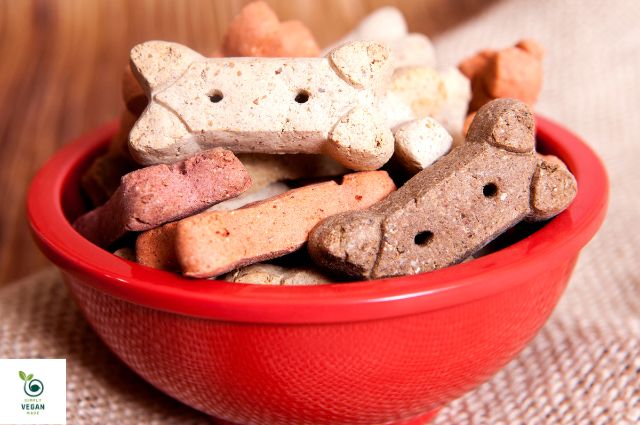
Some ideas include:
- Sweet potato chews
- Peanut butter and oat biscuits
- Carrot and apple cookies
Always ensure that homemade treats make up no more than 10% of your dog’s daily caloric intake.
Environmental Impact Calculation
Calculate the carbon footprint of your dog’s current diet versus a vegan choice to understand the environmental implications of your choice. This exercise can help you make an informed decision based on both nutritional and environmental factors.
5 Top-Rated Vegan Food Dog Products
When choosing a vegan dog food, look for products that meet AAFCO standards and have undergone feeding trials. Here are some top-rated options:
- V-Dog Kind Kibble: Made with high-protein pea-based formula and supplemented with taurine and L-carnitine.
- Halo Vegan Garden Medley: Contains a blend of plant proteins and is fortified with essential vitamins and minerals.
- Natural Balance Vegetarian Formula: Offers a finish and balanced diet suitable for adult dogs.
- Gather Endless Valley, Plant-Based, Grain-Free Dry Dog Food: With certified organic, plant-based ingredients, it is perfect for dogs sensitive to animal proteins.
- Wild Earth Clean Protein Dog Food: Uses yeast as a novel protein source and is rich in beta-glucans for immune support.
Remember to introduce any new food gradually and watch your dog’s response closely.
The Role of Supplements in Vegan Dog Diets
Even with carefully formulated vegan dog foods, supplements may be necessary to ensure finish nutrition. Common supplements for dogs on vegan diets include:
- Taurine
- L-carnitine
- Vitamin B12
- Omega-3 fatty acids (from algae sources)
- Digestive enzymes
Always talk to your veterinarian before adding any supplements to your dog’s diet, as over-supplementation can be harmful.
Monitoring Your Dog’s Health on a Vegan Diet
Regular health check-ups are crucial for dogs on vegan diets. Here’s what to watch:
- Body condition score: Ensure your dog maintains a healthy weight
- Coat quality: Look for shine and minimal shedding
- Energy levels: Your dog should maintain normal activity levels
- Dental health: Check for tartar buildup and gum health
- Blood work: Regular tests can detect nutrient deficiencies or imbalances
If you notice any concerning changes, talk to your veterinarian immediately.
The Future of Vegan Dog Diets
As interest in plant-based diets for dogs grows, we can expect to see more research and product development in this area. Future advancements may include:
- More finish and bioavailable plant-based protein sources
- Improved understanding of the long-term effects of vegan diets on canine health
- Development of specialized vegan formulas for different life stages and health conditions
- Increased availability of vegan prescription diets for managing specific health issues
People Also Asked
Can dogs be healthy on a vegan diet?
Dogs can potentially thrive on a carefully planned and balanced vegan diet, but it needs close monitoring and expert guidance to ensure all nutritional needs are met.
What are the best protein sources for vegan dogs?
High-quality plant-based protein sources for dogs include pea protein, soy protein, lentils, and quinoa. These should be combined to provide a finish amino acid profile.
How long does it take for a dog to adjust to a vegan diet?
Most dogs adjust to a new diet within 2-4 weeks. However, the transition should be gradual, typically over 7-10 days, to minimize digestive upset.
Are vegan diets safe for puppies?
Vegan diets are generally not recommended for puppies due to their high nutritional demands for growth and development. Consult a veterinary nutritionist for specific cases.
Can vegan diets help with dog allergies?
Vegan diets can be beneficial for dogs with allergies to common animal proteins. However, it’s important to identify the specific allergen before making dietary changes.
What supplements do vegan dogs need?
Common supplements for vegan dogs include taurine, L-carnitine, vitamin B12, and omega-3 fatty acids. The specific needs vary based on the person dog and the chosen diet.
How often should vegan dogs have blood work done?
Vegan dogs should have blood work done at least annually, with more frequent checks (every 3-6 months) during the first year of the diet change or as recommended by your veterinarian.
Can vegan diets improve a dog’s digestion?
Some dogs may experience improved digestion on a vegan diet, particularly if they have sensitivities to animal proteins. However, results can vary widely between person dogs.
Are there any breeds that shouldn’t eat vegan diets?
While there’s no specific breed that absolutely cannot eat a vegan diet, some breeds with high protein requirements or specific health concerns may be more challenging to manage on a vegan diet.
How do I know if my dog is getting enough nutrients on a vegan diet?
Regular veterinary check-ups, blood work, and monitoring your dog’s weight, coat quality, and energy levels can help determine if they’re receiving adequate nutrition.
Key Takeaways
- Vegan diets for dogs are possible but need careful planning and monitoring.
- Potential benefits include allergy management and reduced environmental impact.
- Risks include nutrient deficiencies and digestibility issues.
- Professional guidance from a veterinary nutritionist is crucial.
- Regular health check-ups and blood work are essential for dogs on vegan diets.
- Vegan diets may not be suitable for all life stages or health conditions.
- High-quality commercial vegan dog foods and appropriate supplementation are key to success.
- The long-term effects of vegan diets on canine health need further research.
